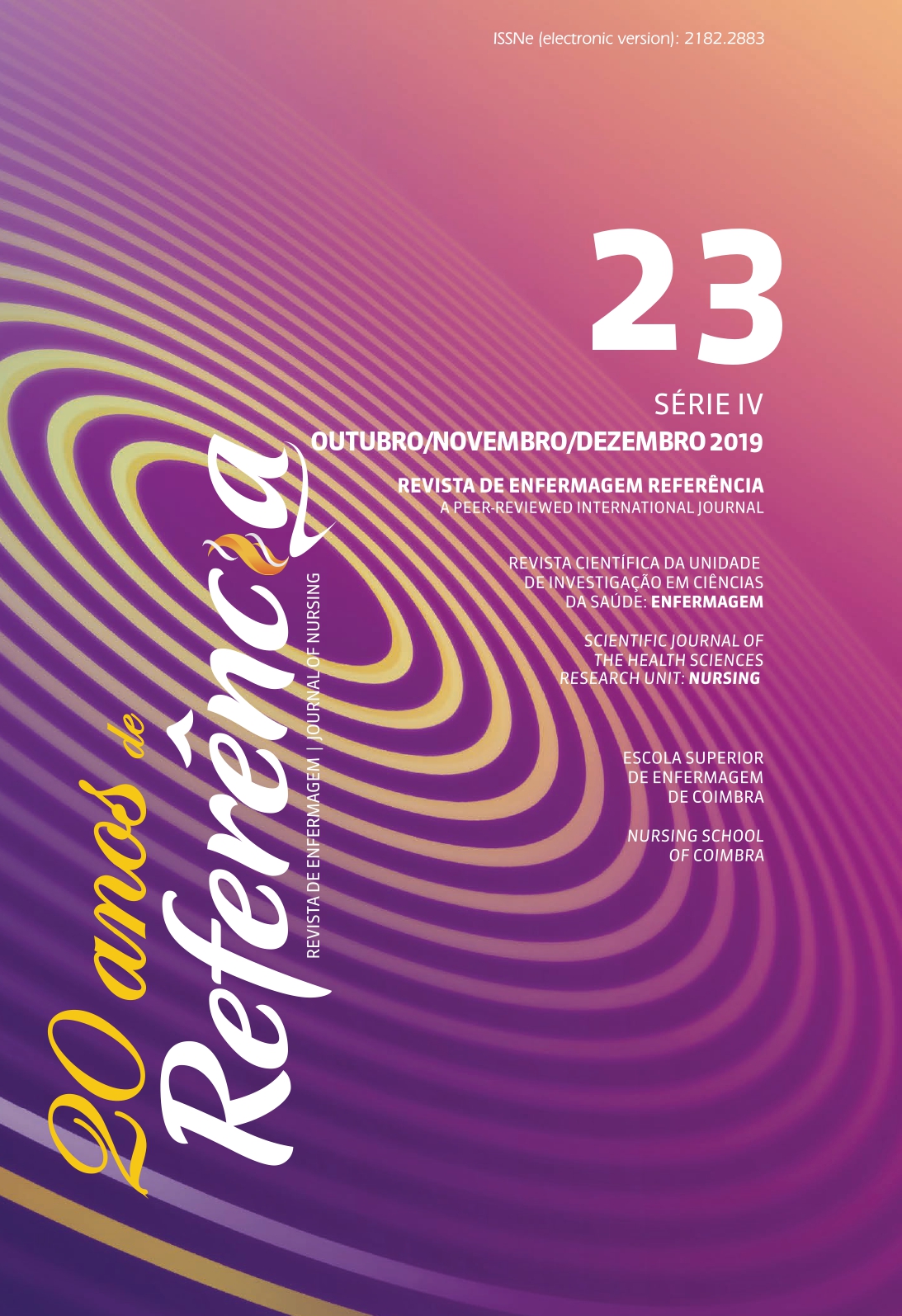Religion/spirituality and social support in improving the quality of life of patients with advanced cancer
DOI:
https://doi.org/10.12707/RIV19072Keywords:
quality of life, neoplasms, palliative care, spirituality, religion, social supportAbstract
Background: The religion/spirituality and social support may improve the quality of life of patients with advanced cancer receiving palliative therapy or palliative care.
Objective: To determine if patients with advanced cancer receiving palliative therapy and/or palliative care use religion/spirituality and social support to cope with the disease, and assess if these aspects improve their quality of life.
Methodology: Observational, cross-sectional, and analytical study conducted in a hospital in southern Brazil from January to July 2018. A sociodemographic/clinical questionnaire and the European Organization for Research and Treatment of Cancer Quality of Life Questionnaire-Core 15 Palliative Care were used. The nonparametric Mann-Whitney test was used for comparative analysis.
Results: A total of 107 patients receiving palliative therapy and 19 patients receiving palliative care participated in this study. Religion/spirituality and social support were unanimously used. The presence of a family member as the main caregiver was significant (p = 0.014), predicting a better quality of life.
Conclusion: Nurses are responsible for promoting humanized care and the use of religion/spirituality and social support, namely the presence of family caregivers, with a view to improving the quality of life of patients with advanced cancer.
Downloads
References
Arrais, R. H. (2018). Comunicação entre cuidadores familiares e pacientes oncológicos em cuidados paliativos: Um estudo na perspectiva da psicologia analítica (Dissertação de mestrado, Universidade de São Paulo, Instituto de Psicologia, Brasil). Recuperado de http://www.teses.usp.br/teses/disponiveis/47/47133/tde
Azevedo, C., Dias, J., Pessalacia, R., Lourdes, E., & Pavone, C. (2017). Interface entre apoio social, qualidade de vida e depressão em usuários elegíveis para cuidados paliativos. Revista da Escola de Enfermagem da USP, 51, e03245. doi: 10.1590/s1980-220x2016038003245
Bradley, N., Lloyd-Williams, M., & Dowrick, C. (2018). Effectiveness of palliative care interventions offering social support to people with life-limiting illness: A systematic review. European Journal of Cancer Care (England), 27(3), e12837. doi: 10.1111/ecc.12837
Caires-Lima, R., Cayres, K., Protásio, B., Caires, I., Andrade, J., Rocha, L., . . . Mak, M. P. (2018). Palliative chemotherapy outcomes in patients with ECOG-PS higher than 1. ECancer Medical Science, 12, 831. doi: 10.3332/ecancer.2018.831
Damiano, R. F., Costa, L. A., Viana, M. T., Moreira-Almeida, A., Lucchetti, A. L., & Lucchetti, G. (2016). Brazilian scientific articles on “Spirituality, Religion and Health”. Archives of Clinical Psychiatry (São Paulo), 43(1), 11-16. doi: 10.1590/0101-60830000000073
Gilbertson-White, S., Aouizerat, B. E., Jahan, T., & Miaskowski, C. (2011). “A review of the literature on multiple symptoms: Their predictors, and associated outcomes in patients with advanced cancer.” Palliative and Supportive Care, 9(1), 81–102. doi: 10.1017/S147895151000057X
Groenvold, M., Petersen, M. A., Aaronson, M. J., Arraras, J. I., Blazebay, J. M., Bottomlay, A., . . . Bjorner, J. B. (2006). The development of the EORTC QLQ-C- 15-PAL: A shortened questionnaire for cancer patients in palliative care. European Journal of Cancer, 42(1), 55–64. doi: 10.1016/j.ejca.2005.06.022
Jaramillo, R. G., Monteiro, P. S., & Borges, M. S. (2019). Coping religioso/espiritual: Um estudo com familiares de crianças e adolescentes em tratamento quimioterápico. Cogitare Enfermagem, 24, e62297. doi: 10.5380/ce.v24i0.62297.
Nunes, N. A. (2014). The quality of life of Brazilian patients in palliative care: Validation of the European Organization for Research and Treatment of Cancer Quality of Life Questionnaire Core 15 PAL (EORTCQLQ-C15-PAL). Support Care Cancer, 22(6), 1595-1600. doi: 10.1007/s00520-014-2119-1
Oken, M. M., Creech, R. H., Tormey, D. C., Horton, J. M., Davis, T. E., Mcfadden, T. T., & Carbone, P. P. (1982). Toxicity and response criteria of the Eastern Cooperative Oncology Group. American Journal of Clinical Oncology, 5(6), 649-656. doi: 10.1097/00000421-198212000-00014
Peteet, J. R., & Balboni, M. J. (2013). Spirituality and religion in oncology. CA: A Cancer Journal for Clinicians, 63(4), 280-289. doi: 10.3322/caac.21187 Ribeiro, K, Eluf Neto, J., Luizaga, C., Lombardo, V., &
Leite, V. (2015). Low educational level is associated with advanced cancer stage in Brazil. International Journal of Epidemiology, 44(Suppl. 1), i3-i4. doi: 10.1093/ije/dyv097.009
Sorato, D. B., & Osório, F. L. (2015). Palliative oncology treatmens and hopelessness: An analysis of associated clinical and psychosocial factors. British Journal of Medicine & Medical Research, 9(11), 1-11. doi: 10.9734/BJMMR/2015/18890
Silva, R. B., Begnini, D., Stamm, B., Mistura, C., & Cogo, S. B. (2019). Palliative care for the patient and the family who experience cancer: Integrative review. Revista Científica da Saúde, 1(1), 41-59. Recuperado de http://revista.urcamp.tche.br/index.php/revistasaude/article/view/276/2273
Silva, L. S., Lenhani, B. E., Tomim, D. H., Guimarães, P. R., & Kalinke, L. P. (2019). Quality of life of patients with advanced cancer in palliative therapy and in palliative care. Aquichan, 19(3), e1937. doi: 10.5294/aqui.2019.19.3.7
Xing, L., Guo, X., Bai, L., Qian, J., & Chen, J. (2018). Are spiritual interventions beneficial to patients with cancer?: A meta-analysis of randomized controlled trials following PRISMA. Medicine, 97(35), e11948. doi: 10.1097/MD.0000000000011948
Warapornmongkholkul, A., Howteerakul, N., Suwannapong, N., & Soparattanapaisarn, N. (2018). Self-efficacy, social support, and quality of life among primary family-member caregivers of patients with cancer in Thailand. Journal of Health Research, 32(2), 111-122. doi: 10.1108/JHR-01-2018-012
West, C., Paul, S. M., Dunn, L., Dhruva, A., Merriman, J., & Miaskowski, C. (2015). Gender differences in predictors of quality of life at the initiation of radiation therapy. Oncology Nursing Forum, 42(5), 507-516. doi: 10.1188/15.ONF.507-516
THE WHOQOL Group. (1998). Development of the World Health Organization WHOQOL-BREF Quality of Life Assessment. Psychological Medicine, 28(3), 551-558. doi: 10.1017/S0033291798006667






















